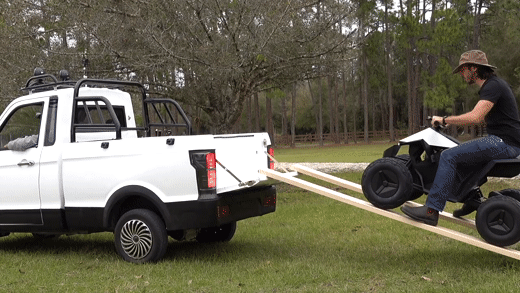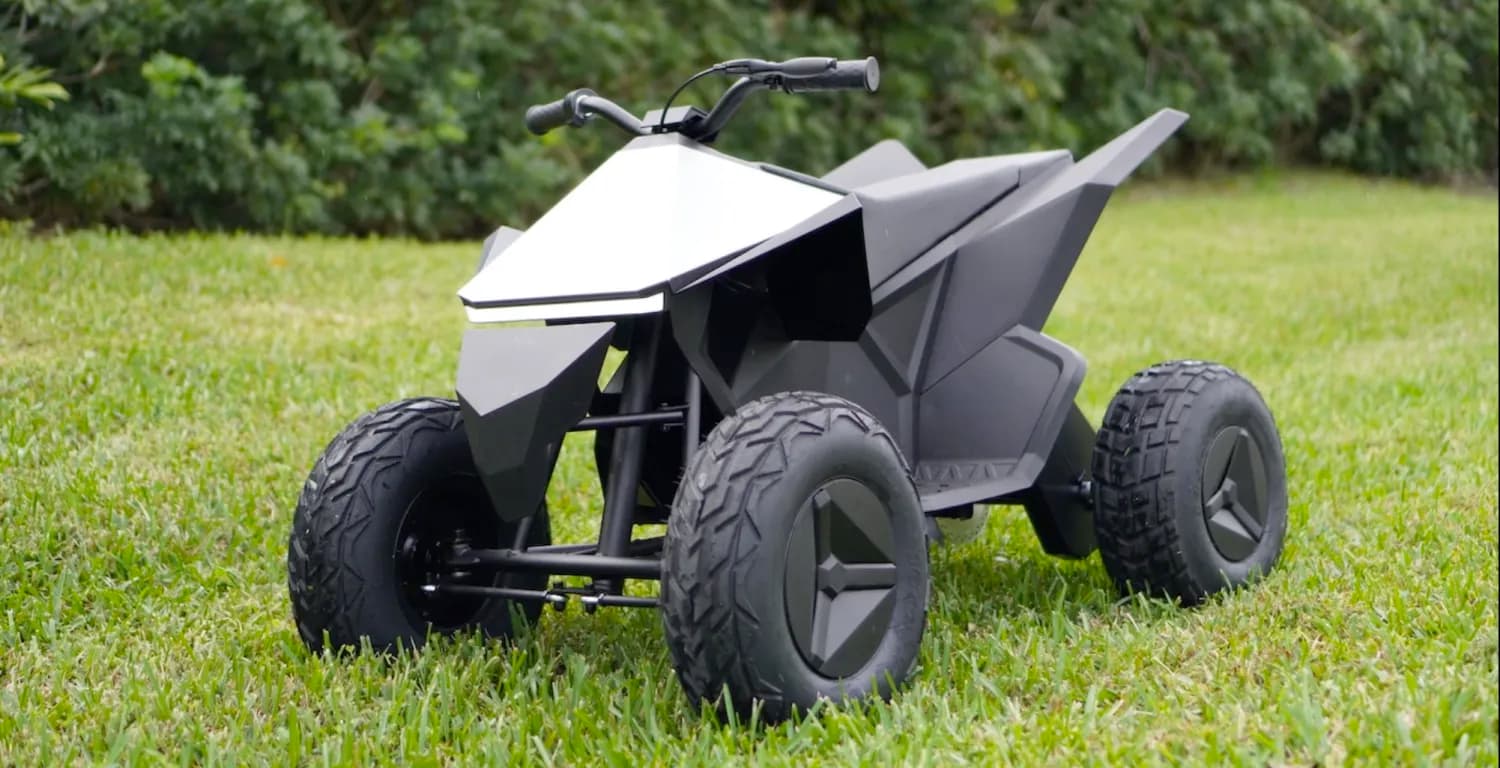
Despite Tesla’s long-awaited Cyberquad electric ATV likely still having a long wait ahead of us, it’s actually been two years since the company rolled out a smaller version designed for young riders. But after a Consumer Product Safety Commission recall put the kibosh on the original version, Tesla has returned with an updated model that managed to avoid the same laws that quashed the original.
The Cyberquad for Kids may look like a Tesla, but it was in fact created from a partnership between Tesla Design Studio and the popular children’s toy maker Radio Flyer.
The original model proved incredibly popular, selling out within minutes. With supply low and demand skyrocketing, the conditions were ripe for scalping. Online auction sites like eBay were full of units selling for thousands of dollars over the original $1,900 price tag.
However, the Consumer Product Safety Commission (CPSC) eventually took notice of the commotion. The CPSC ultimately decided that the Cyberquad for Kids wasn’t a kid’s ride-on toy as it was being marketed, but rather a youth ATV. And based on their rules, they were right.
According to section 42(e)(1) of the Consumer Product Safety Act (CPSA) an ATV is defined as “any motorized, off-highway vehicle designed to travel on 3 or 4 wheels, having a seat designed to be straddled by the operator and handlebars for steering control.” So it may look like a toy, but it fit the definition for a youth ATV.
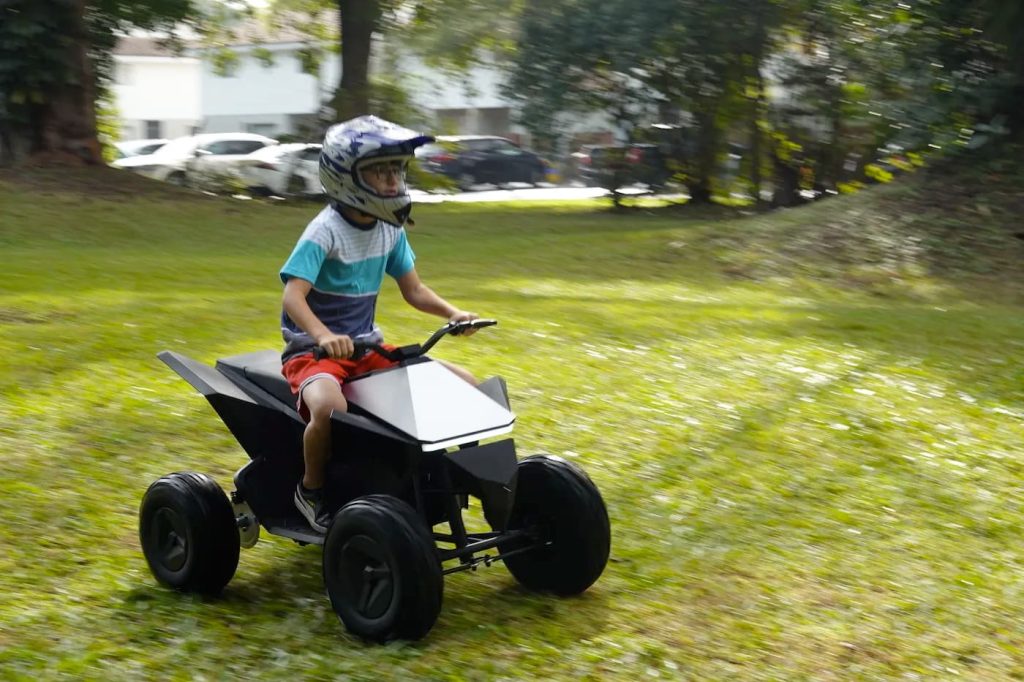
The CPSC takes ATV regulations quite seriously due to the higher risk of injury they have historically posed. As ATVs gained popularity in the US during the 1970s and 80s, statistics tracking injuries and deaths skyrocketed. Many are familiar with the infamous US ban on 3-wheeled ATVs imposed in the late 1980s, but there is also a long list of regulations imposed on 4-wheeled ATVs as well.
To be fair, the simple design and 10 mph performance of the Cyberquad for Kids put it much closer to the kind of ride-on toys you’d find at box stores than to actual youth ATVs designed for thrill-riding or off-road shenanigans. But as they say, “rules are rules,” and the product still fit within the CPSC’s definition of a youth ATV.
As such, the CPSC put its foot down in late 2022, forcing a total recall of the Cyberquad for Kids sold in the US.
Now Tesla and Radio Flyer have returned with a new version of the Cyberquad for Kids that has just re-opened sales in the US with deliveries set to begin later this month.
As Radio Flyer’s CEO explained, “Our award-winning product development team has worked closely with the Tesla Design Studio to update this popular product so we could bring it back stronger than ever.”
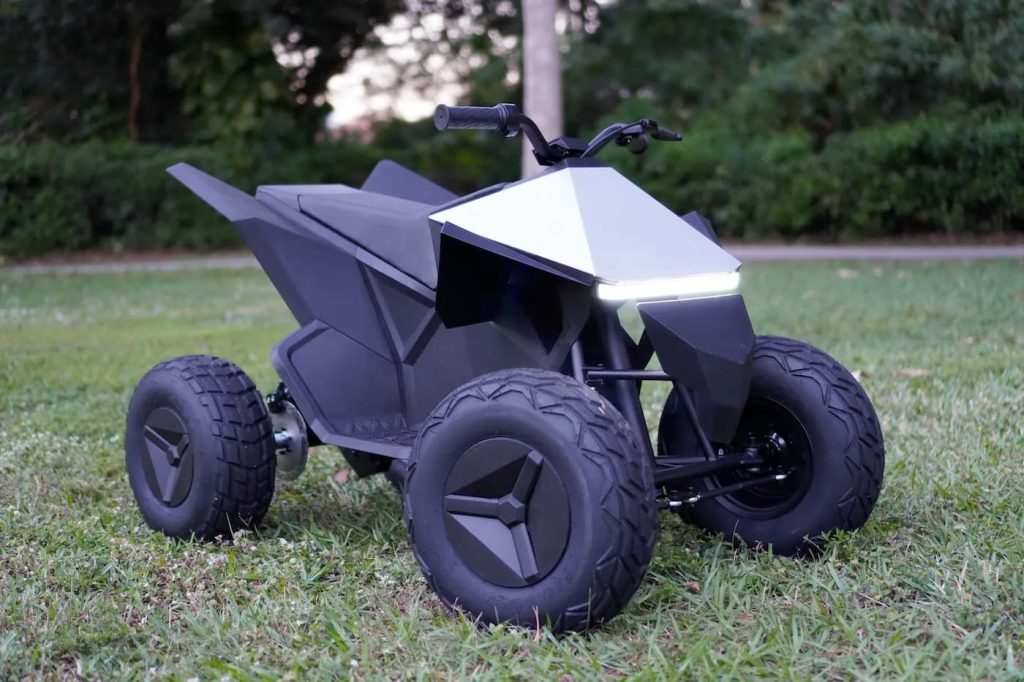
Tesla detailed a number of those updates on the product page, explaining that the Cyberquad for Kids has now been certified as a true ride-on toy, and is no longer considered a youth ATV.
According to Tesla:
The new Model 915 Cyberquad for Kids is a certified electric ride-on toy under ASTM F963 and meets U.S. Consumer Product Safety Standards for ride-on toys. Not approved or intended for use as a youth ATV.
CPSC Modifications to Model 915 from Model 914:
- Age Range: 9-12 years
- Tire pressure warning label added: Equipped with new ANSI Z535-formatted warning decal instructing owners to maintain a tire pressure of 20-30 psi
- Product warning label revised: Equipped with a new ANSI Z535-formatted warning decal defining intended use as a youth ride-on toy only
- Seat support spring removed
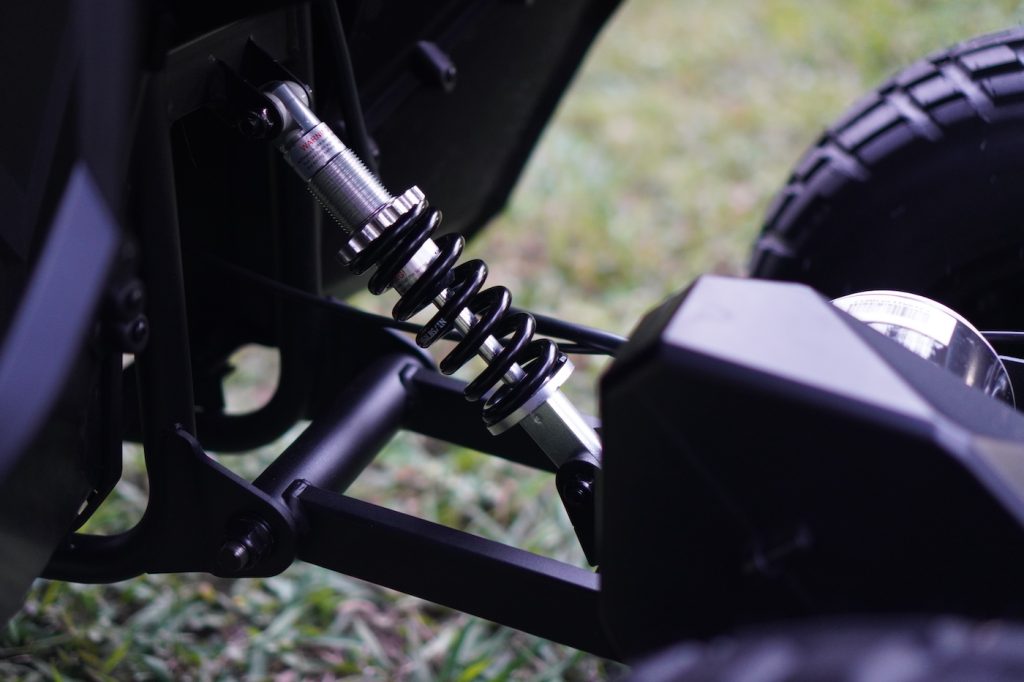
The three main changes include two warning labels and the removal of a “seat support spring”, which likely refers to the rear suspension.
The original design included a solid rear axle mounted on a rear swingarm, offering single-pivot suspension commonly found on simple youth ATVs. Removing that suspension likely helps make the case for the little quad being closer in design to ride-on toys than actual youth ATVs.
To be fair, the original suspension wasn’t much. Even with its simple design though, it still functioned decently. I’m within spitting distance of the 150 lb (68 kg) weight limit, and so I had a chance to review the Cyberquad for Kids last year (check out the video below). I found that the suspension did in fact help improve the ride on rough terrain, though most kids (or kids-at-heart like me) are more likely to ride the quad around grassy lawns and smooth sidewalks – not rough off-road trails.
Without that suspension, the product will still likely be a fun ride but certainly won’t feel as comfortable as the original.
We’ll all just have to keep waiting for the full-sized Cyberquad if we want to see Tesla truly enter the ATV market for real this time.
Oh, and just for a fun laugh, it looks like the Cyberquad for Kids has proven to be so popular that companies are already knocking it off with cheap imitations.
I was at the Milan Motorcycle Show last week and thought I had stumbled upon a booth for the Asian factory that produces the actual device. But as I got closer, I realized it wasn’t a real Cyberquad for Kids, but rather a cheap knock-off.
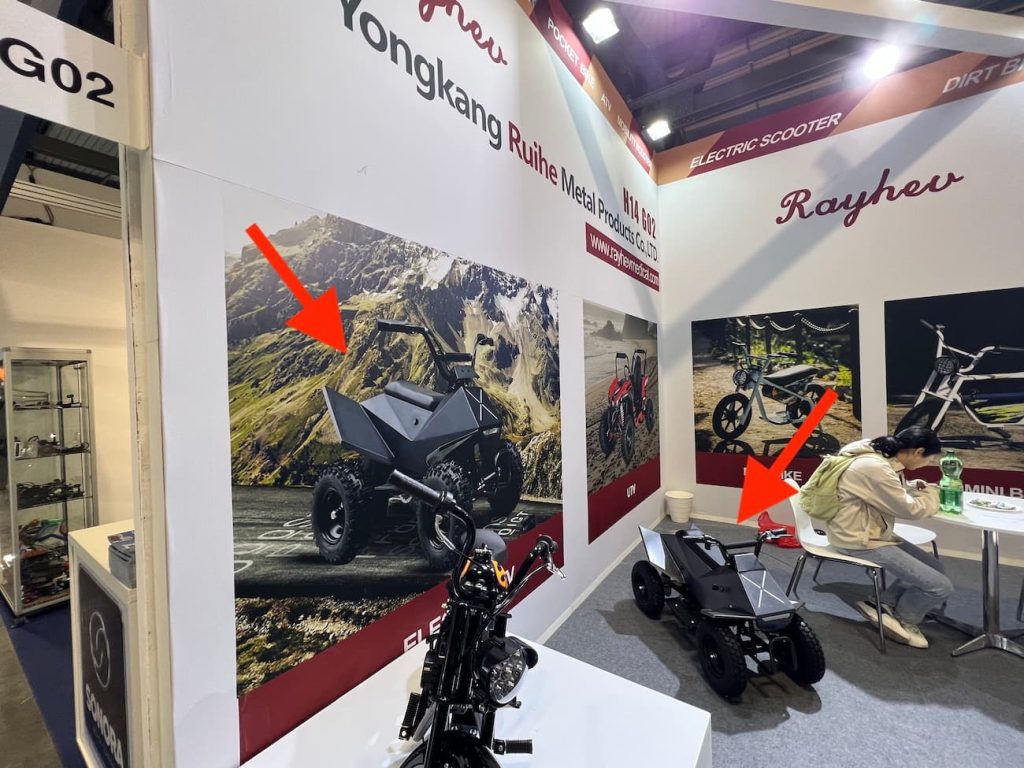
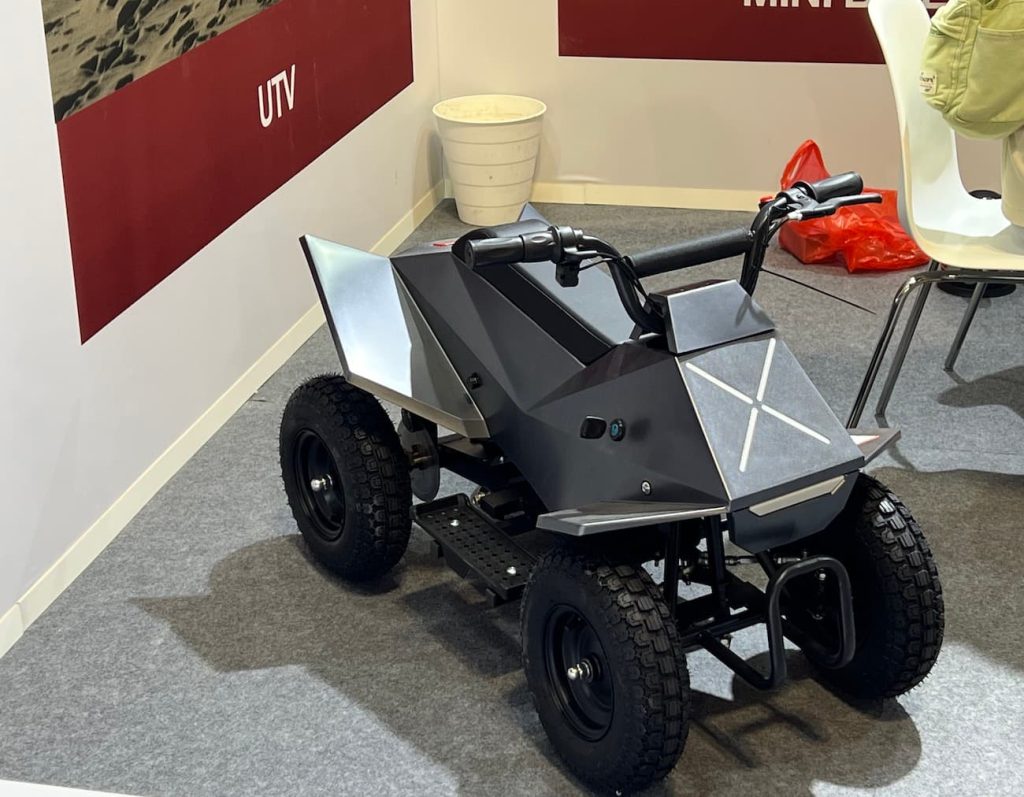
It definitely didn’t have the same pizazz, and I’m guessing it didn’t have the same performance either.
For reference, see me riding the original Cyberquad for Kids up a steep ramp into the back of my electric mini-truck below.
In fact, I’ve since rigged up my own Cyberquad for Kids with a tow hitch, and we now use it on my family’s ranch for real work. It tows a fertilizer spreader and a sprayer trailer behind it for use in the fields. Hmm, perhaps that should be my next Weekend Project article…
